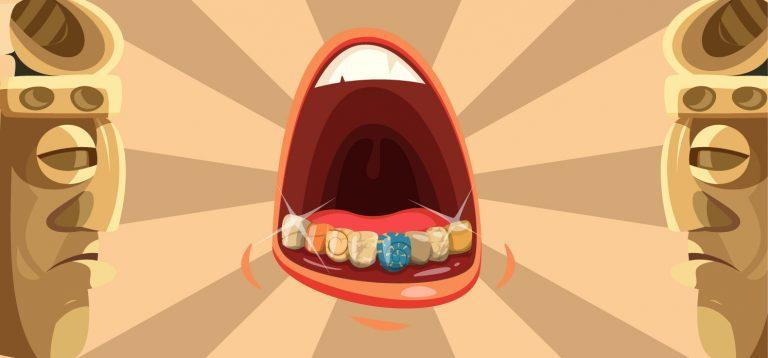As with anything in the field of medicine, dental implants have had a history. At first, implants were crude devices, but they have evolved since then into a beneficial piece of dental care for those who use and need them. Dental implants have a fascinating history that is bound to interest almost anyone. The history of dental implants begins 2619 years ago in the mouths of the Mayan population.
The Early Times: Stone and Shell

Many thousands of years ago, the ancient Egyptians used gold wire to help stabilize their teeth, and many other ancient populations followed suit. Of course, the first attribution of the use of dental implants did not come until the year 600 AD, where the Mayans used bits of shells to replace mandibular teeth. Later, in 800 AD, the Hondurans began to use stones as implants for mandibular teeth. Other than these few notable discoveries, the history of dental implants really begins to kick off in the 1600s.
Around this time, Europeans collected teeth from the bodies of dead, underprivileged people to be used as implants in the wealthier members of society. In the 1700s, Dr. John Hunter ran an experiment where teeth were implanted in roosters, and he found that the blood vessels of the rooster grew into the tooth's pulp. After this discovery, stealing teeth from cadavers began to die down, leading to experimentation with many different materials. Some dental implant materials tested included gold, silver, porcelain, and even iridium. Most of these materials resulted in undesirable side effects.
Moving into Modern Days: Titanium
The failed experiments with materials like gold all lay in the discovery of Dr. John Hunter. Just as the rooster's body accepted a real tooth, those working on creating functional dental implants would need to use a material that could be integrated into the bone. In the early 1900s, doctors began using Vitallium and platinum-based implants because they found these materials to integrate fairly well into bone. Through the 1940s and 1950s, doctors continued discovering stronger and better implant materials like stainless steel, as well as improvements in the actual procedure.
Between 1960 and 1979, most of the physicians focused on improving the techniques of placing an implant, but, notably, carbon implants became somewhat popular during the 1970s. Then, the 1980s hit the world. Titanium implants were found to be the best. Titanium binds to the bone and becomes nearly impossible to remove. Interestingly, this was accidentally discovered by experimentation with a rabbit in the 1950s and tested in humans in the 1980s. With these titanium implants, patients were able to recover much more quickly and with far fewer complications.
The Benefits of Dental Implants
At the first visit to the dentist's office, one's teeth and oral health will be thoroughly assessed. In some cases, the dentist may recommend dental implants for those with missing teeth. Dental implants are not usually placed in the first visit because the patient should have time to understand the risks, benefits, and cost of the treatment. With a skilled dentist, this procedure will go relatively smoothly and vastly improve the health of the one receiving implants.
During this procedure, the dental implant is placed into the bone if there is enough present. If not, the dentist can perform a grafting procedure to create space for the implant. Once it is placed, the dentist will construct a crown. Upon completion of the procedure, the patient will have restored functionality of the missing tooth, and the aesthetics of the tooth will be returned. This can lead to a great improvement in one's oral health and self-esteem.
Dental implants have a unique and interesting history that spans from ancient times to modern times. Even now, people are continuously looking for ways to improve dental implant materials and procedures. All of this is good news for the person who needs a dental implant because this history has led to a safe procedure that creates functional and beautiful replacement teeth.
